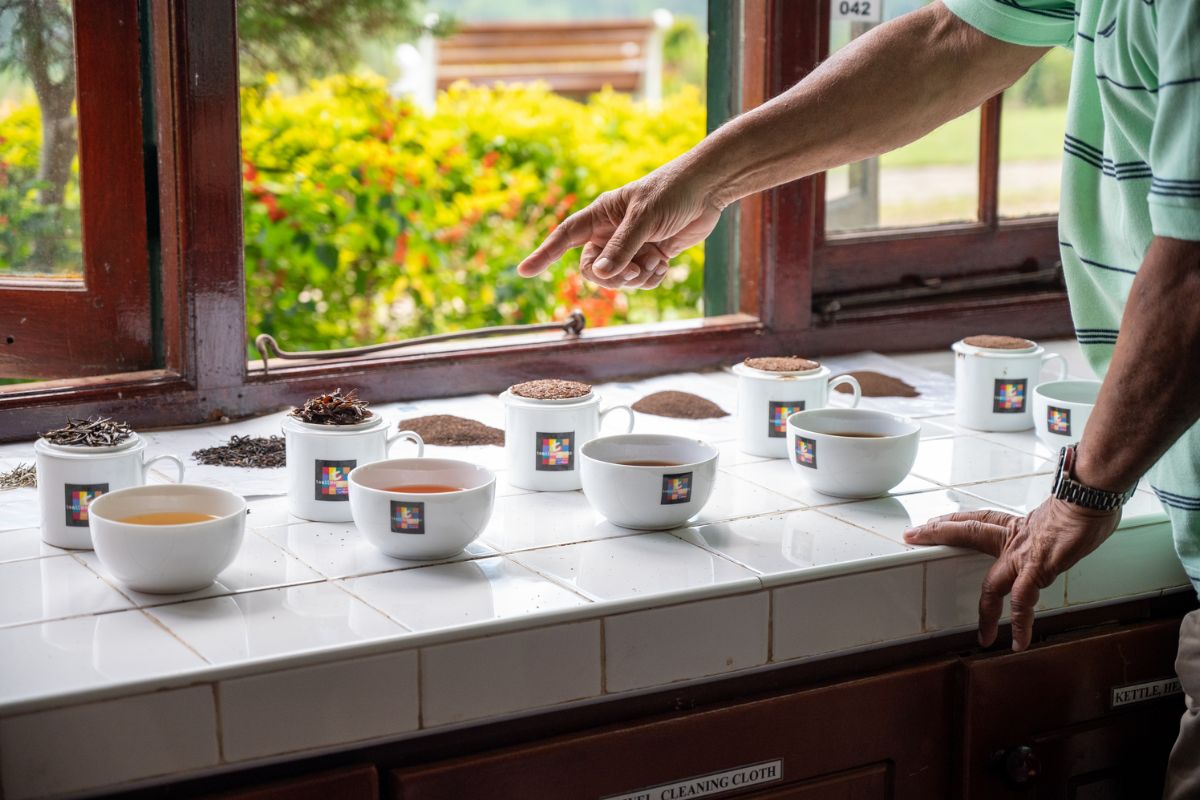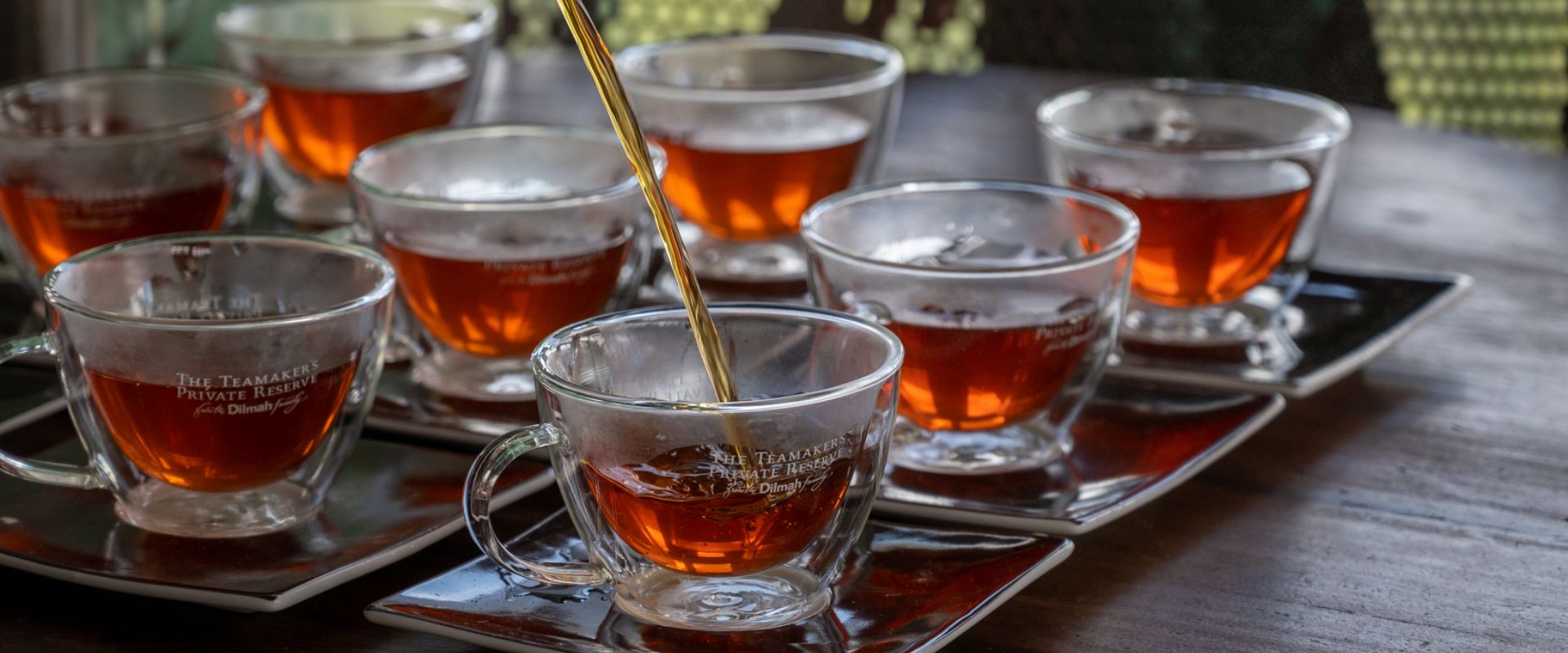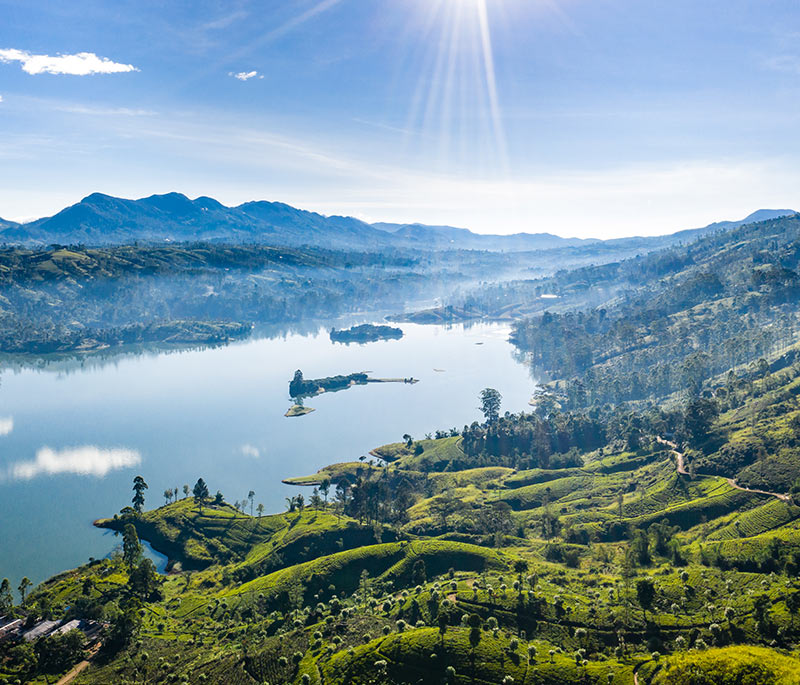Toast to a Cup of Tea
Recognising the long history and the cultural and economic significance of tea around the world, as well as the significant role it plays in rural development, poverty reduction and food security in developing countries, the United Nations General Assembly proclaimed 21 May as International Tea Day, calling on FAO to lead the observance.
Tea production and processing continue to be a primary source of livelihoods for millions of families, particularly in developing countries. The observance promotes sustainable production, consumption and trade of tea and offers an opportunity for actors at global, regional and national levels to ensure that the tea sector continues to play a role in reducing extreme poverty, fighting hunger and safeguarding natural resources.
This year’s celebration will be an occasion to reaffirm the commitment of all stakeholders to supporting smallholder tea growers and help them overcome the challenges they face.

History of tea
The origins of tea stretch back over 5,000 years.
It begins in China, sometime in the year 2737 BC. Emperor Shen Nung was sitting beneath a tree; his servant was boiling drinking water. Some leaves from the tree blew into the water and as a renowned herbalist, Nung decided to try the infusion his servant had accidentally brewed. Whether this tale is pure legend or true remains in ambiguity. However, the truth is that tea drinking was very much an established custom long before it was heard of or practised in the west.

Why is tea so important today?
There have been many great debates on whether drinking tea is good or bad for health. Medical and scientific research over the years however have proven that drinking four cups of tea a day may help maintain health. A variety of teas boost the immune system, fight off inflammation, and even ward off cancer and heart disease according to numerous studies. All teas also have caffeine which affects the brain and heightens alertness.
Due to its high water content, tea is a particularly good choice of beverage in keeping one’s body hydrated. While drinking tea alone is not a solution or cure to any health condition, it can be easily integrated into a healthy lifestyle.

Tea in Sri Lanka
The story of tea in Sri Lanka began over two hundred years ago.
The year was 1824 when the first tea plant was brought to Ceylon. It came from China and was planted in the Royal Botanical Gardens in Peradeniya for non-commercial purposes.
James Taylor is widely regarded as the ‘father’ of Ceylon Tea. He hailed from Scotland and arrived on the island in the year 1852. He was sent to the Loolecondera Estate, a coffee plantation in the Kandy District, and was made its manager within five years as Ceylon went on to become the world’s largest coffee producer by 1860. Despite the successes of coffee, the owners of Loolecondera suggested to Taylor that he experiment with tea. It was fortuitous timing as the coffee rust disease first made an appearance two years later, and within the following two decades, coffee was all but wiped out.
In 1866, on the orders of G.D.B. Harrison, proprietor of Loolecondera Estate, Hewaheta (along with W.M. Leake), Taylor collected tea seeds from Peradeniya Botanical Gardens and planted them along the roadsides of Loolecondera. This was in an attempt to make up for the losses borne from the dying coffee plantations. Successfully, within the next 12 months, the first tea estate was born – Field No. 7 – expanding to 19 acres on the Loolecondera Estate, marking the birth of the industry.

Celebrate Int. Tea Day at our Resorts
An indulgent afternoon awaits at Cape Weligama. At cocktail hour, savour tea-based liquid aperitifs crafted just for the occasion, as you treat your palate to an array of tea-infused canapes.
Journey back through time at Ceylon Tea Trails as our resident tea planter shares the history of tea at a private tea tasting. Learn to identify (and appreciate!) the unique flavour profiles that give different teas their distinction. Sip on tea-infused cocktails as the evening unfolds. At night, anticipate the best fare expertly crafted into a tea-tastic offering; the tea-infused dinner, a signature experience at our bungalows in the hills.
Set against the oceanic backdrop, sundowners at Wild Coast Tented Lodge bring to life a selection of tea-infused cocktails and scrumptious canapes with creative flair.
For more information, kindly email us at reservations@resplendentceylon.com





